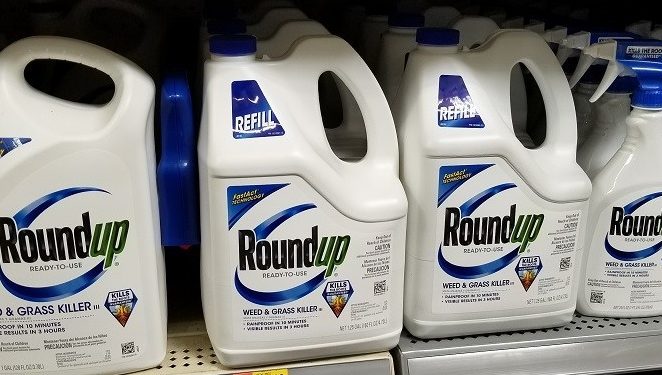Jury awards $2 billion in Roundup cancer case
May 14, 2019

A California jury awarded more than $2 billion to a couple who claimed they contracted cancer from using the weed killer Roundup. [NPR]
The Alameda County jury awarded the more than $2 billion in damages in a verdict against Monsanto, now a subsidiary of Bayer, that produces the glyphosate-based herbicide. Alva and Alberta Pilliod, of Livermore, claimed they contracted non-Hodgkin’s lymphoma as a result of their Roundup use.
Bayer said it is disappointed with the jury’s ruling and will appeal the verdict. The damages could be reduced significantly following an appeal.
In a statement, Bayer said the verdict directly conflicts with the Environmental Protection Agency’s interim registration review decision that was released last month, as well as with the consensus among health regulators worldwide that glyphosate products can be used safely and are not carcinogenic.
Since taking over Monsanto last year, Bayer has now lost three California court cases over Roundup. In March, a San Francisco jury awarded $80 million to a man who blamed his cancer on extensive use of Roundup.
In Aug. 2018, another San Francisco jury awarded to $289 million to a plaintiff in a Roundup lawsuit. After the case was appealed, a judge decreased the award to $78 million.
Bayer has opted to appeal the verdicts in each of the cases. The company insists there is no connection between Roundup and non-Hodgkin’s lymphoma.
Monsanto and Bayer have faced numerous lawsuits over alleged harm caused by Roundup. One such lawsuit was filed by the widow of Cambria farmer Jack McCall, who died of non-Hodgkin’s lymphoma in 2015. McCall reportedly used Roundup on his farm everyday for nearly 30 years, and the family’s dog, which spent its life roaming the farm, also died of lymphoma, according to the suit.






The comments below represent the opinion of the writer and do not represent the views or policies of CalCoastNews.com. Please address the Policies, events and arguments, not the person. Constructive debate is good; mockery, taunting, and name calling is not. Comment Guidelines